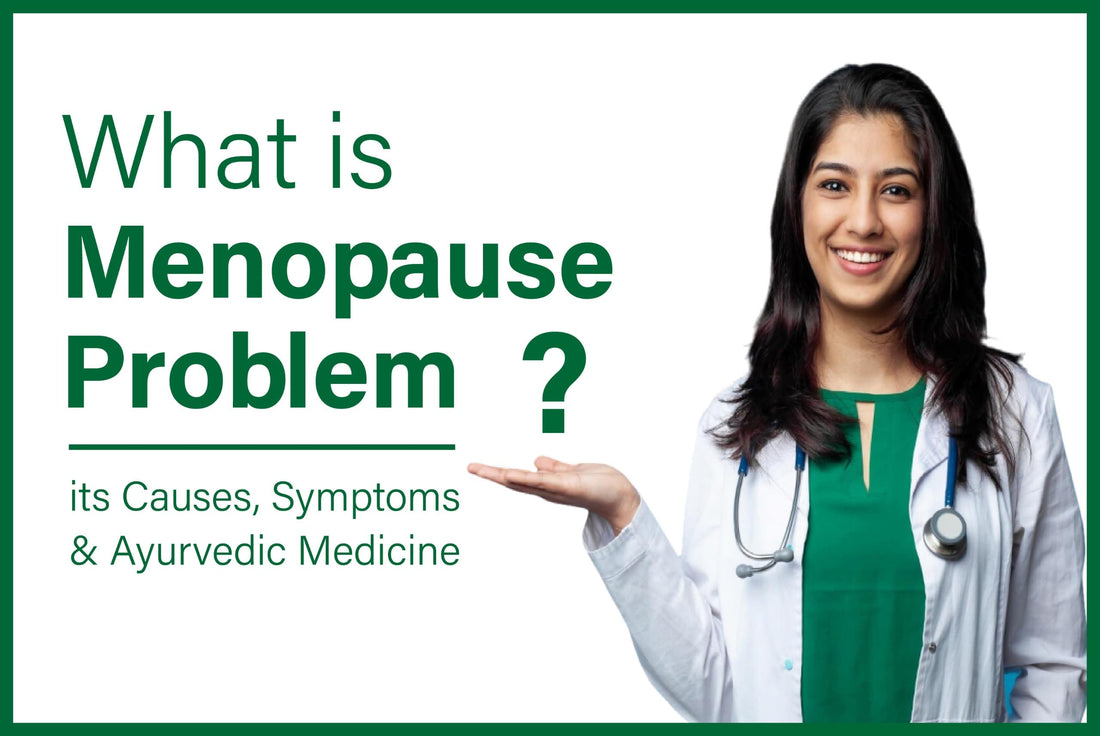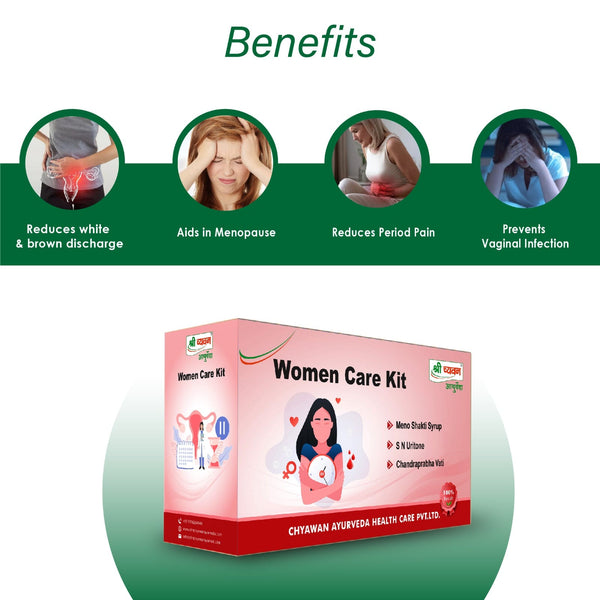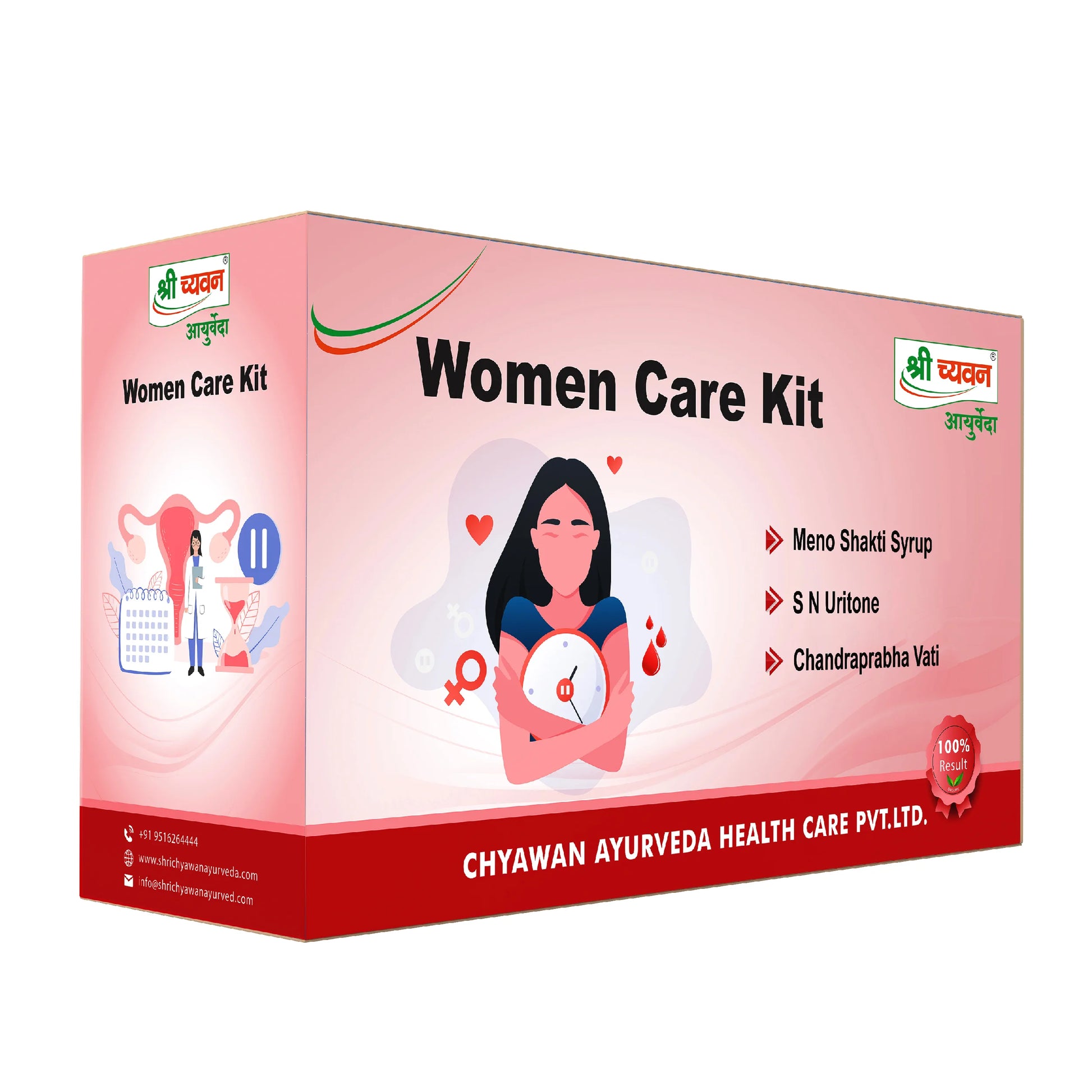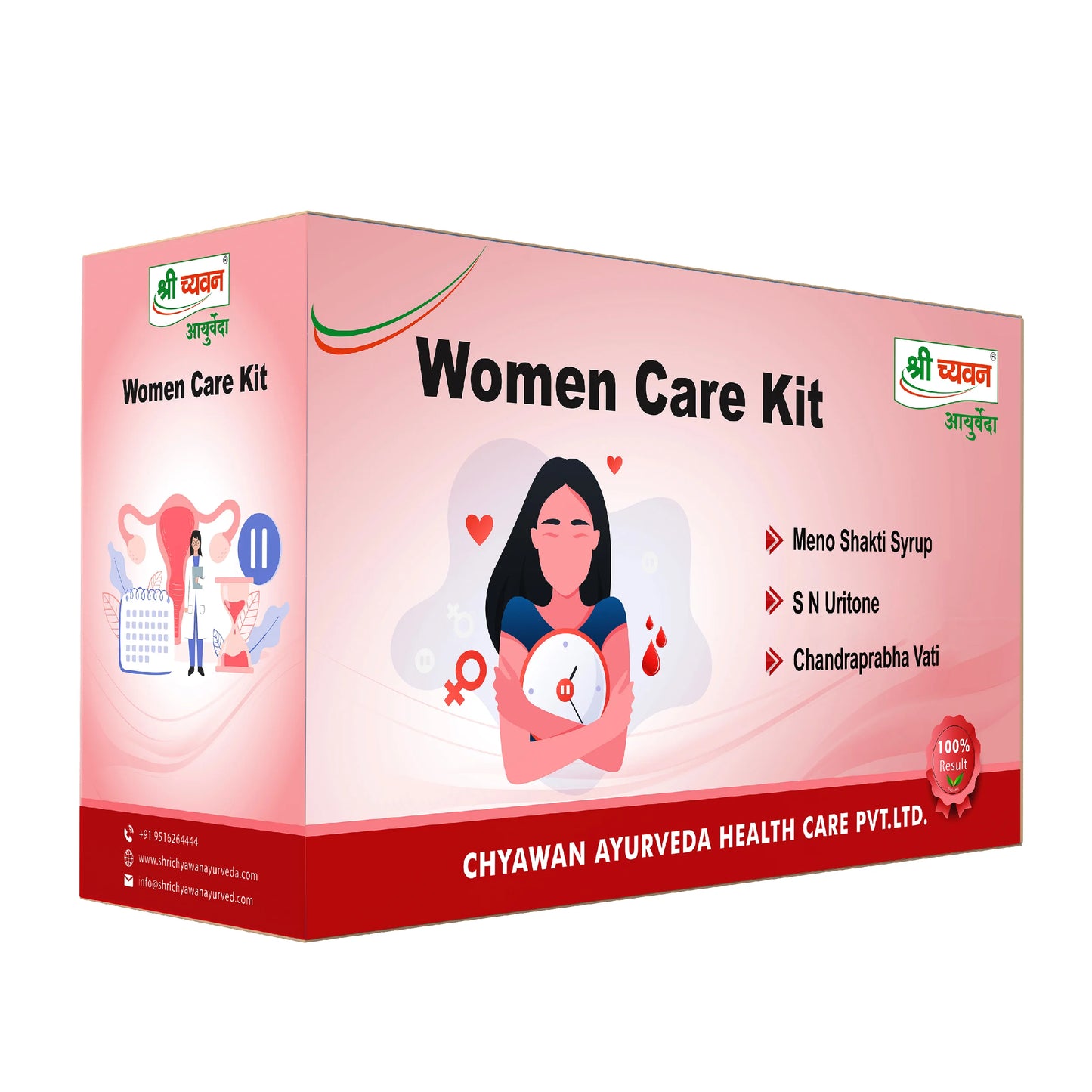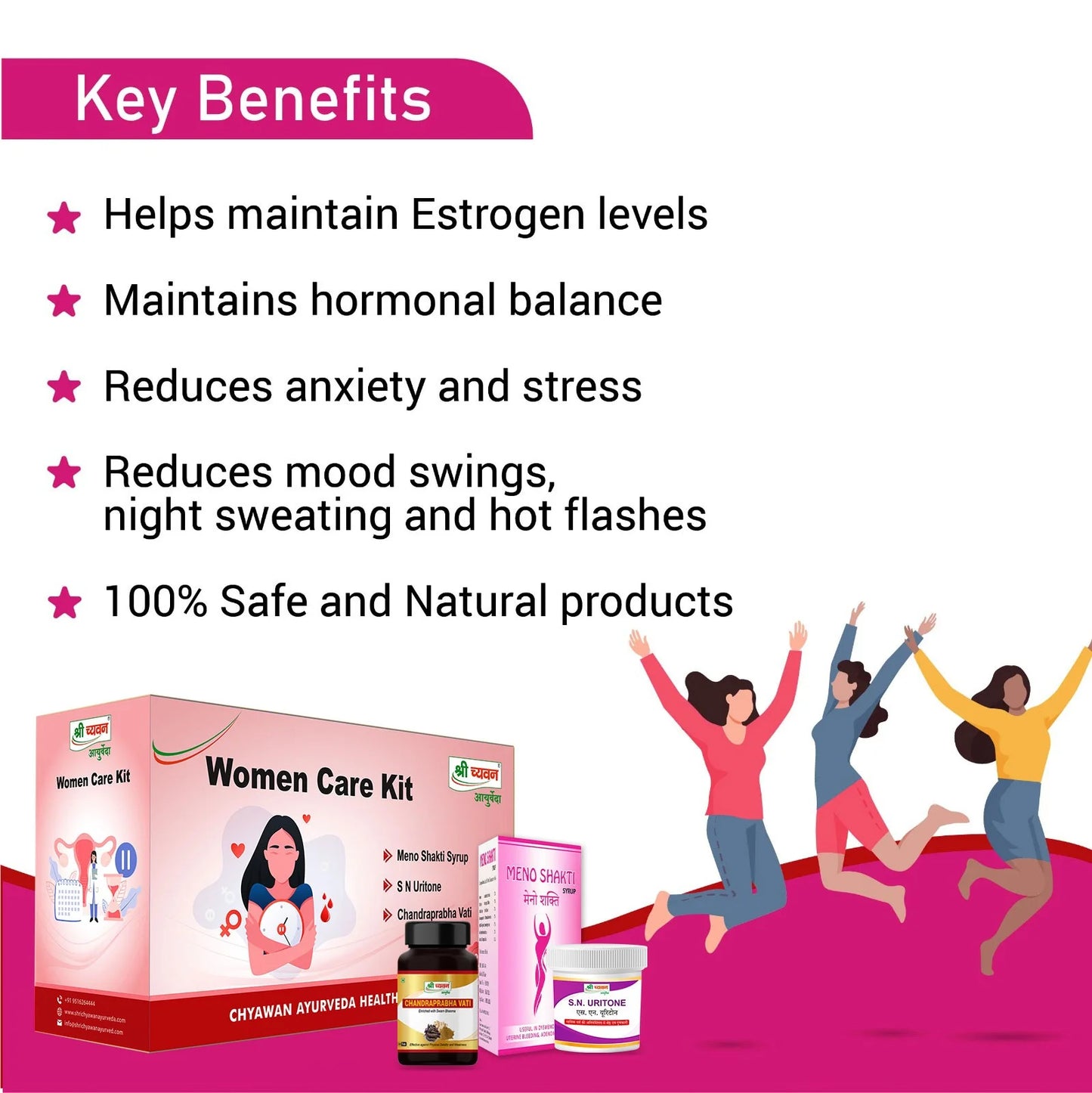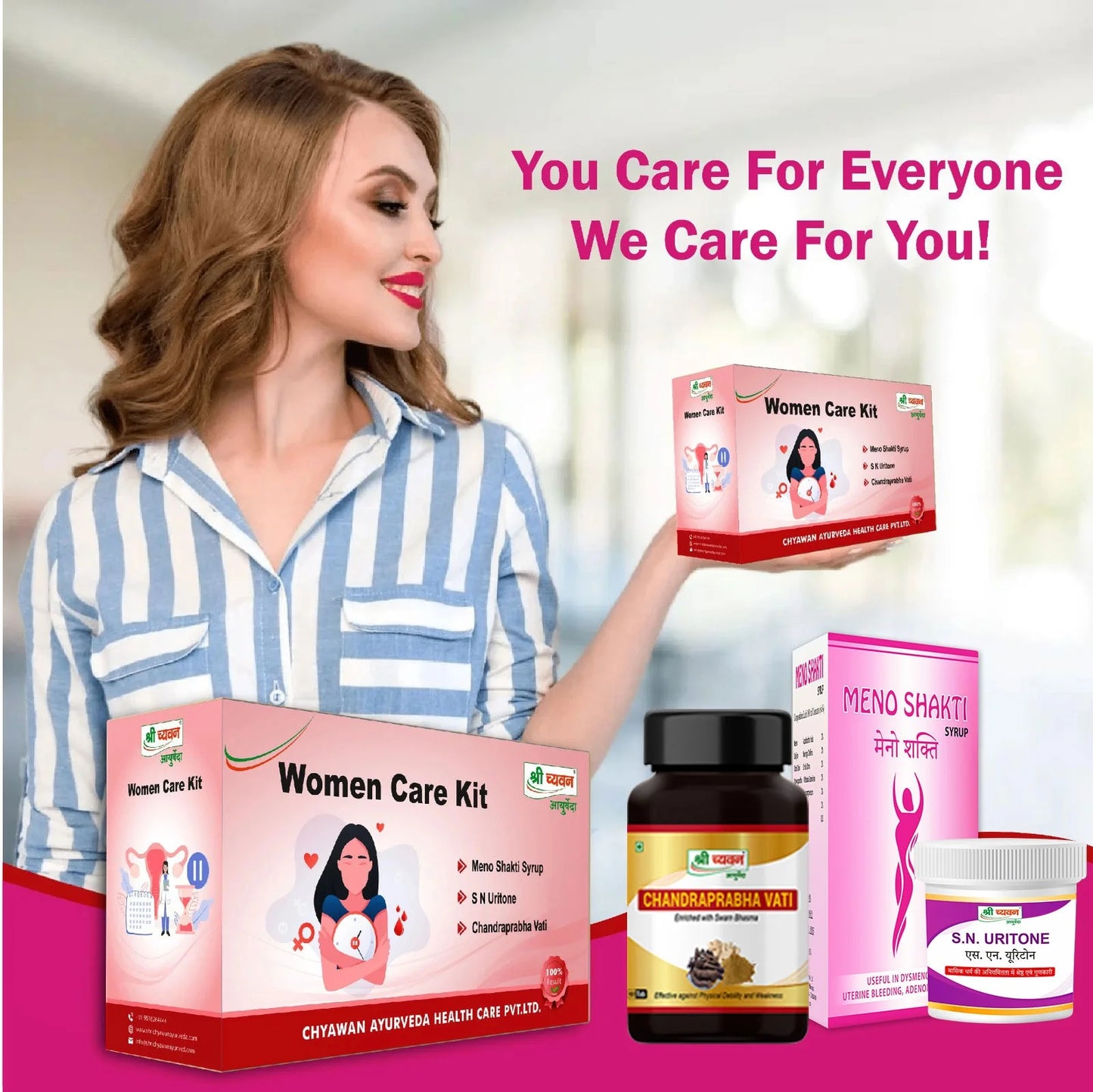Menopause is a natural biological process that signifies the end of a woman's reproductive years, typically occurring in her late 40s to early 50s. During menopause, the ovaries produce fewer hormones, particularly estrogen and progesterone, leading to the cessation of menstrual cycles. This hormonal shift can result in various symptoms like hot flashes, night sweats, mood swings, and may have health implications such as increased risk of osteoporosis and heart disease. While it's a natural phase of life, the experience varies among individuals, and management options, including hormone replacement therapy and lifestyle changes are available to address its associated challenges.
What are the causes of Menopause?
Menopause is primarily caused by natural biological factors related to the aging process. The key cause of menopause is the gradual decline in the function of a woman's ovaries, which leads to a decrease in the production of hormones, especially estrogen and progesterone. This decline in ovarian function is influenced by several factors:
-
Age: The most common cause of menopause is advancing age. Menopause typically occurs in women between their late 40s and early 50s, although the exact age can vary.
-
Genetics: Family history and genetics can play a role in the timing of menopause. Women with a family history of early menopause may experience it earlier themselves.
-
Ovarian Reserve: Each woman is born with a finite number of eggs in her ovaries. As she ages, the number of eggs decreases, and the remaining eggs may be of lower quality, leading to hormonal changes and eventually menopause.
-
Hormonal Changes: Hormonal fluctuations can also contribute to the onset of menopause. The balance of hormones like estrogen and progesterone naturally shifts as a woman age, ultimately leading to the end of reproductive cycles.
-
Surgery or Medical Treatments: Surgical removal of the ovaries (oophorectomy) or certain medical treatments, like radiation or chemotherapy, can induce menopause at an earlier age.
- Autoimmune Disorders: Some autoimmune disorders can affect ovarian function and lead to premature menopause.
It's important to note that menopause is a natural part of a woman's life cycle and not considered a disease. While the timing and experience of menopause can vary among individuals, it is primarily driven by these biological factors and represents the end of a woman's reproductive phase.
What are the symptoms of Menopause?
Menopause is associated with a range of physical and emotional symptoms, although not all women will experience them to the same degree or at all. Common symptoms of menopause include:
-
Irregular Periods: As women approach menopause, their menstrual cycles may become irregular, with variations in the timing and flow of periods.
-
Hot Flashes: Sudden, intense feelings of heat, often accompanied by sweating and a flushed face, are a hallmark symptom of menopause. Hot flashes can vary in frequency and intensity.
-
Night Sweats: Hot flashes that occur during the night, leading to excessive sweating, can disrupt sleep patterns.
-
Vaginal Dryness: Decreased estrogen levels can result in a lack of vaginal lubrication, leading to discomfort during sexual intercourse and an increased risk of urinary tract infections.
-
Mood Swings: Hormonal fluctuations can contribute to mood changes, including irritability, anxiety, and even depression for some women.
-
Sleep Disturbances: Menopausal symptoms like night sweats and mood swings can disrupt sleep, leading to insomnia or poor-quality sleep.
-
Changes in Libido: Some women may experience a decrease in sexual desire or changes in sexual function during menopause.
-
Weight Gain: Hormonal changes and a slowing metabolism can contribute to weight gain, particularly around the abdominal area.
-
Bone Health: Decreased estrogen levels can lead to a loss of bone density, increasing the risk of osteoporosis.
-
Heart Health: Postmenopausal women have a higher risk of heart disease, partly due to changes in lipid profiles and blood pressure.
- Memory and Concentration: Some women report cognitive changes, such as memory problems and difficulty concentrating, although the link between menopause and cognitive function is still an area of ongoing research.
It's important to remember that not all women will experience these symptoms, and the severity and duration of symptoms can vary widely. Some women may have a relatively smooth transition through menopause, while others may find it more challenging. Lifestyle changes, hormone replacement therapy (HRT) and other treatments can be considered to manage these symptoms and a healthcare provider can provide guidance based on an individual's needs and preferences.
Ayurvedic Medicine for Menopause:
Shri Chyawan Ayurveda has brought complete solution for all the problems faced by women like Menopause, Irregular Periods, Hormonal Imbalances, PCOD/PCOS, etc., and has formulated an effective ayurvedic medicine and treatment - Women Care Kit. It is made up of a combination of natural and ayurvedic products which make it trustworthy and safe for use, thus recommended as an ideal ayurvedic medicine for Menopause.
The Women Care Kit contains -
1. Chandraprabha Vati: It helps to reduce the level of uric acid, keeping vaginal infections away.
Ingredients: It consists Swarn Bhasm, Vai Vidang, Chitrak Bark, Daruharidra, Devdaru, Camphor, Pipalmool, Nagarmotha, Pippal, Kali Mirch, Yavkshar, Vach, Dhania, Chavya, Gajpipal, Sounth, Sendha Namak, Nishoth, Dantimool, Tejpatra, Chhoti elaichi.
How to Use: Consume 1 tablet at night before going to bed.
- S.N. Uritone Capsule: Itprovides relief from period pain, irregular periods, white or brown discharge, and back and pelvic pain.
Ingredients: It consists of ingredients like Pashan Bhed, Esogen, Kumkum, Ativish, Logrh, Loh Bhasm, Madhuyasti, Tramr Bhasm, Vang Bhasm, Pipli, Chav, Vach, Hapusha, Dev Daru, Aela, Rakt Chandan, Chitramul.
How to use: Twice a day after meals i.e., post lunch and dinner.
- Menoshakti Syrup: Helps in irregular periods and hormonal imbalance. It helps to maintain estrogen levels, considerably reduces stress and anxiety, and reduces hot flashes and night sweats.
Ingredients: It consists of Gooler fruit, Ashoka Bark, Methi, Nag Keshar, Nagar Motha, Punarnava, Clove, Jaiphal, Trikuta, Triphala, Nagarvel, Mulethi.
How to use: Consume 4 tablespoons twice a day after meals i.e., post lunch and dinner.
Ayurvedic Treatment for Menopause:
Ayurveda, an ancient system of medicine from India, offers natural approaches to managing menopausal symptoms. While individual results may vary, here are some potential benefits of following Ayurvedic principles for menopause treatment in bullet points:
-
Holistic Approach: Ayurveda focuses on the overall well-being of the individual, addressing not only physical but also mental and emotional aspects, which can be particularly beneficial during the emotional ups and downs of menopause.
-
Balancing Doshas: Ayurveda categorizes individuals into different body types or doshas (Vata, Pitta, and Kapha). Treatment aims to balance these doshas to alleviate symptoms and promote harmony within the body.
-
Dietary Changes: Ayurvedic dietary recommendations emphasize foods that can help manage menopausal symptoms, such as incorporating cooling foods to alleviate hot flashes and mood swings, and avoiding spicy or heating foods.
-
Herbal Remedies: Ayurveda employs a wide range of herbs and natural remedies to address specific menopausal symptoms. For example, herbs like Ashwagandha and Shatavari are believed to support hormonal balance.
-
Yoga and Meditation: Ayurveda often incorporates yoga and meditation practices to reduce stress, improve mood, and enhance overall well-being, which can be especially helpful during menopause.
-
Lifestyle Modifications: Ayurveda promotes a balanced daily routine that includes regular exercise, adequate sleep, and stress management techniques to ease menopausal discomfort.
-
Oil Massage (Abhyanga): Regular oil massages can help nourish the skin, improve circulation, and promote relaxation, potentially alleviating dry skin and mood swings.
-
Consultation with Ayurvedic Practitioner: Ayurvedic treatment is highly individualized, and consulting with a qualified Ayurvedic practitioner can help tailor a treatment plan to address a woman's specific needs and constitution.
- Minimal Side Effects: Ayurvedic treatments typically have minimal side effects compared to some pharmaceutical options, which can be appealing to women seeking more natural approaches.
In conclusion, Ayurveda offers a holistic and natural approach to managing menopausal symptoms. By focusing on balancing doshas, making dietary adjustments, utilizing herbal remedies, incorporating practices like yoga and meditation, and adopting a balanced lifestyle, Ayurveda aims to alleviate the physical and emotional challenges that accompany menopause. While individual results may vary, Ayurveda's personalized and gentle methods can provide relief from symptoms and promote overall well-being during this significant life transition. It is essential to consult with a qualified Ayurvedic practitioner or healthcare provider to create a tailored treatment plan that suits your specific needs and constitution.

